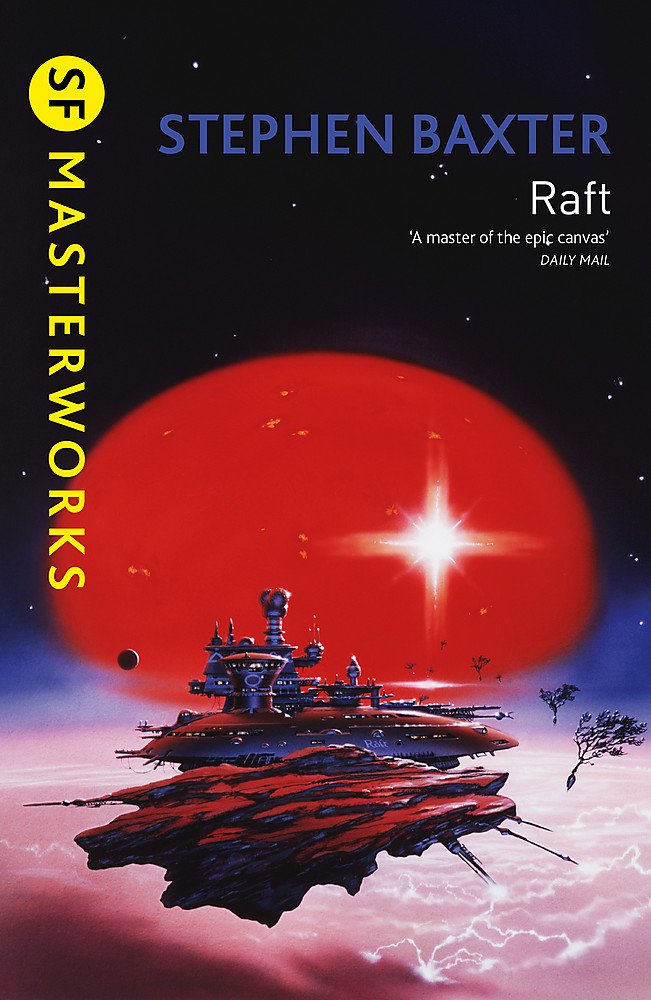This was an entertaining and fairly short read, about a human society that develops after a spaceship accidentally ends up in another universe with much higher gravity than our own, which means the universe is VERY different to ours in various entertaining ways.
At its best, the story has a mythological feel to it, and at times there's decent opportunities to read deeper meaning into the text. At its worst, the characters are explaining maths to each other. Hard SF is not really my kind of SF, but I enjoyed this more than the likes of Tau Zero and Mission of Gravity - if those deserve to be to be SF Masterworks, then Raft certainly does.
 Rees, our protagonist, is a miner living in bad conditions on the Belt, a sort of space station. Precociously intelligent and curious about the universe, he manages to travel to the Raft, a sort of city built around the original spaceship. Here he discovers that the Raft-dwellers have a rigid class system, which is increasingly causing discontent among the lower orders, and that miners from the Belt are looked down on as a wretched underclass, almost as another species.
Rees, our protagonist, is a miner living in bad conditions on the Belt, a sort of space station. Precociously intelligent and curious about the universe, he manages to travel to the Raft, a sort of city built around the original spaceship. Here he discovers that the Raft-dwellers have a rigid class system, which is increasingly causing discontent among the lower orders, and that miners from the Belt are looked down on as a wretched underclass, almost as another species.Rees' intelligence gains him the favour of the Scientists, stuffy academics who decide to raise him as their own.
The early chapters of the novel, where Rees is an adolescent in Science School, feel like adolescent's school-time power fantasy. Rees is a kid from a poor background who ends up at a posh school, and is picked on by classist bullies. However, since he was raised as a miner, he is extremely strong compared to the pampered Raft folk, so can beat them with both brains and brawn.
The classism of his colleagues irks him, and he becomes aware and affected by the injustices of Raft society - but science is his passion, and here he spends his time and energy, and here he succeeds.
Years later, the Raft is rocked by revolution. Without a shred of self-awareness, Rees yells at the other scientists for being solely focused on science and not doing anything about the decades of injustice that have led to this revolution.
The first half of the novel, adolescent power fantasy aside, has an entertaining critique of the class system and the ivory towers of academia. The setting - the alternate universe and its society - is a fun one to explore, and you can tell Baxter had fun thinking it up and is eager to show you around it. The characters are, however, very bland and one dimensional. Rees is kind of interesting in the first half because of the class consciousness which gets abandoned once he's successful, but for the rest of the novel he's a super-intelligent strongman, and the plot is just a series of events that enable a tour of the setting. Good job it's an interesting setting.
This is the first Baxter novel I have read. I wouldn't be averse to reading another, but nor am I in a rush to get a hold of one. I've heard that Timelike Infinity is a better novel than this, and is perhaps more deserving of masterwork status. I might read it one day.